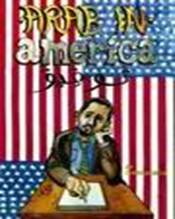题目内容
Saturday,March 24th
We have arrived in the hot, wet city of Bangkok. This is our first trip to Thailand(泰国). All the different smells make us want to try the food. We are going to eat something special for dinner tonight. The hotel we are staying in is cheap, and very clean. We plan to stay here for a few days, visit some places in the city, and then travel to Chiang Mai in the North.
Tuesday, March 27th
Bangkok is wonderful and surprising! The places are interesting. We visited the famous market which was on water, and saw a lot of fruits and vegetables. Everything is so colorful, and we have taken hundreds of photos already! Later today we will leave for Chiang Mai. We will take the train north, stay in Chiang Mai for two days, and then catch a bus to Chiang Rai.
Friday,March 30th
Our trip to Chiang Rai was long and boring. We visited a small village in the mountains. The village people here love the quiet life -- no computers or phones. They are the kindest people I have ever met. They always smile and say “hello”. Kathy and I can only speak a few words of Thai, so smiling is the best way to show our kindness. I feel good here and hope to be able to come back next year.
小题1:The diaries above show the writer’s _________days in Thailand.
小题2:It seems that visitors _________ in Bangkok.
小题3:Which of the following is TRUE?
小题4:The people in the village _________.
小题5:The best title of this article is_________.
We have arrived in the hot, wet city of Bangkok. This is our first trip to Thailand(泰国). All the different smells make us want to try the food. We are going to eat something special for dinner tonight. The hotel we are staying in is cheap, and very clean. We plan to stay here for a few days, visit some places in the city, and then travel to Chiang Mai in the North.
Tuesday, March 27th
Bangkok is wonderful and surprising! The places are interesting. We visited the famous market which was on water, and saw a lot of fruits and vegetables. Everything is so colorful, and we have taken hundreds of photos already! Later today we will leave for Chiang Mai. We will take the train north, stay in Chiang Mai for two days, and then catch a bus to Chiang Rai.
Friday,March 30th
Our trip to Chiang Rai was long and boring. We visited a small village in the mountains. The village people here love the quiet life -- no computers or phones. They are the kindest people I have ever met. They always smile and say “hello”. Kathy and I can only speak a few words of Thai, so smiling is the best way to show our kindness. I feel good here and hope to be able to come back next year.
小题1:The diaries above show the writer’s _________days in Thailand.
| A.3 | B.7 | C.15 | D.30 |
| A.often feel hungry | B.can always find cheap things |
| C.can’t take any photos | D.can enjoy themselves |
| A.Chiang Mai is a beautiful city in the south of Thailand. |
| B.The writer left Chiang Mai for Chiang Rai by bus. |
| C.Chiang Rai is a boring city in the mountains. |
| D.The writer is traveling alone in Thailand. |
| A.are friendly to others | B.like to speak English |
| C.are very weak | D.hope to live in the cities |
| A.My First Travel | B.The Outside World |
| C.Traveling in Thailand | D.A Country on the Train |
小题1:B
小题2:D
小题3:B
小题4:A
小题5:C
小题1:细节理解题,根据文中语句“Saturday,March 24th。We have arrived in the hot, wet city of Bangkok
Friday,March 30th。I feel good here and hope to be able to come back next year.”理解可知。
小题2:细节理解题,根据文中语句“Bangkok is wonderful and surprising! The places are interesting.”理解可知。
小题3:细节理解题,根据文中语句“We will take the train north, stay in Chiang Mai for two days, and then catch a bus to Chiang Rai.”理解可知。
小题4:细节理解题,根据文中语句“They are the kindest people I have ever met.”理解可知。
小题5:标题理解归纳题,根据文中语句理解可知。

练习册系列答案
相关题目
